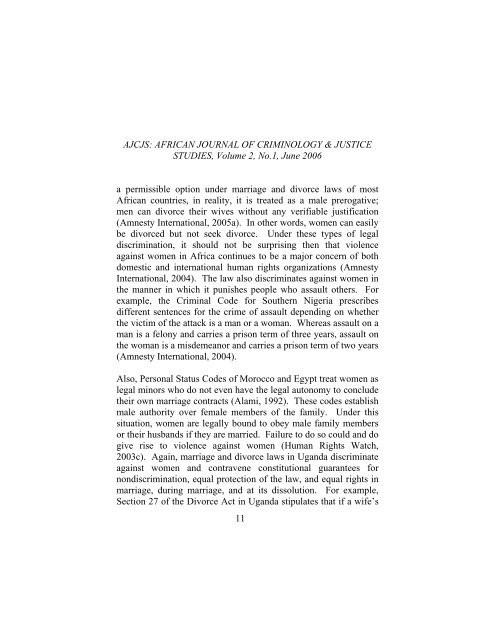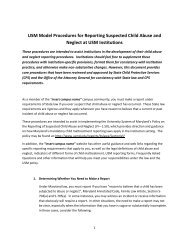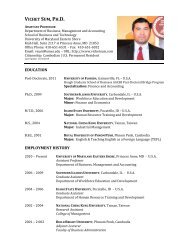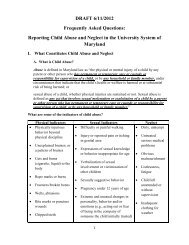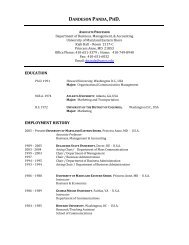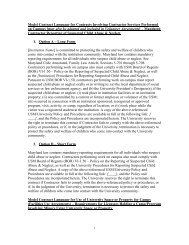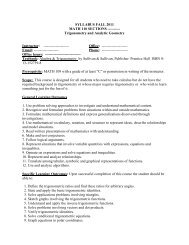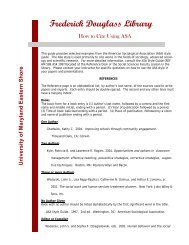violence against women in Africa
violence against women in Africa
violence against women in Africa
Create successful ePaper yourself
Turn your PDF publications into a flip-book with our unique Google optimized e-Paper software.
AJCJS: AFRICAN JOURNAL OF CRIMINOLOGY & JUSTICE<br />
STUDIES, Volume 2, No.1, June 2006<br />
a permissible option under marriage and divorce laws of most<br />
<strong>Africa</strong>n countries, <strong>in</strong> reality, it is treated as a male prerogative;<br />
men can divorce their wives without any verifiable justification<br />
(Amnesty International, 2005a). In other words, <strong>women</strong> can easily<br />
be divorced but not seek divorce. Under these types of legal<br />
discrim<strong>in</strong>ation, it should not be surpris<strong>in</strong>g then that <strong>violence</strong><br />
<strong>aga<strong>in</strong>st</strong> <strong>women</strong> <strong>in</strong> <strong>Africa</strong> cont<strong>in</strong>ues to be a major concern of both<br />
domestic and <strong>in</strong>ternational human rights organizations (Amnesty<br />
International, 2004). The law also discrim<strong>in</strong>ates <strong>aga<strong>in</strong>st</strong> <strong>women</strong> <strong>in</strong><br />
the manner <strong>in</strong> which it punishes people who assault others. For<br />
example, the Crim<strong>in</strong>al Code for Southern Nigeria prescribes<br />
different sentences for the crime of assault depend<strong>in</strong>g on whether<br />
the victim of the attack is a man or a woman. Whereas assault on a<br />
man is a felony and carries a prison term of three years, assault on<br />
the woman is a misdemeanor and carries a prison term of two years<br />
(Amnesty International, 2004).<br />
Also, Personal Status Codes of Morocco and Egypt treat <strong>women</strong> as<br />
legal m<strong>in</strong>ors who do not even have the legal autonomy to conclude<br />
their own marriage contracts (Alami, 1992). These codes establish<br />
male authority over female members of the family. Under this<br />
situation, <strong>women</strong> are legally bound to obey male family members<br />
or their husbands if they are married. Failure to do so could and do<br />
give rise to <strong>violence</strong> <strong>aga<strong>in</strong>st</strong> <strong>women</strong> (Human Rights Watch,<br />
2003c). Aga<strong>in</strong>, marriage and divorce laws <strong>in</strong> Uganda discrim<strong>in</strong>ate<br />
<strong>aga<strong>in</strong>st</strong> <strong>women</strong> and contravene constitutional guarantees for<br />
nondiscrim<strong>in</strong>ation, equal protection of the law, and equal rights <strong>in</strong><br />
marriage, dur<strong>in</strong>g marriage, and at its dissolution. For example,<br />
Section 27 of the Divorce Act <strong>in</strong> Uganda stipulates that if a wife’s<br />
11


